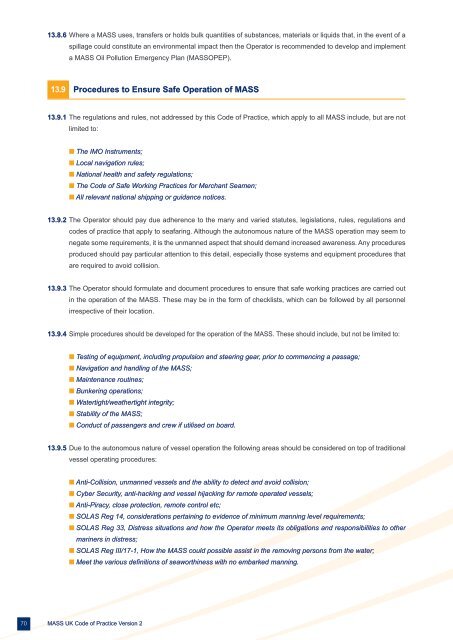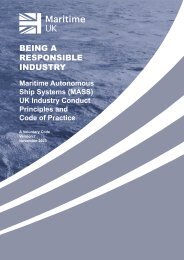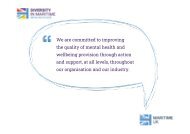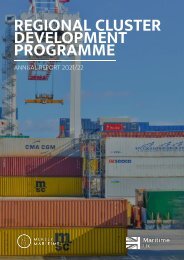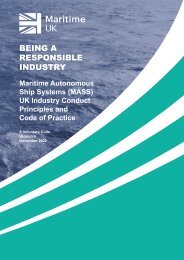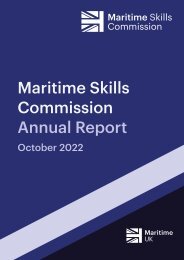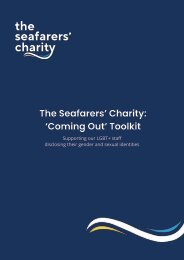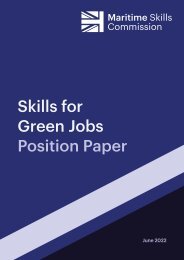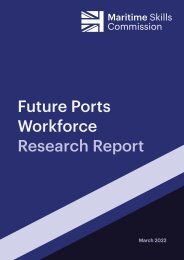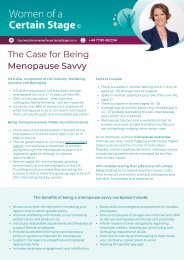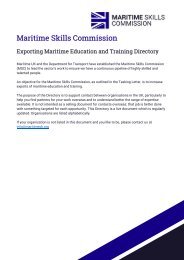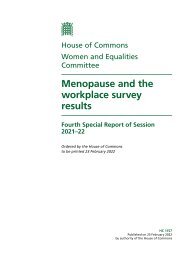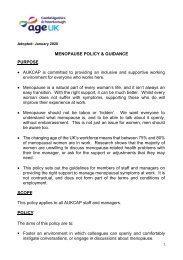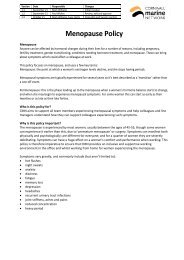Maritime UK MASS CoP v2
Create successful ePaper yourself
Turn your PDF publications into a flip-book with our unique Google optimized e-Paper software.
13.8.6 Where a <strong>MASS</strong> uses, transfers or holds bulk quantities of substances, materials or liquids that, in the event of a<br />
spillage could constitute an environmental impact then the Operator is recommended to develop and implement<br />
a <strong>MASS</strong> Oil Pollution Emergency Plan (<strong>MASS</strong>OPEP).<br />
13.9 Procedures to Ensure Safe Operation of <strong>MASS</strong><br />
13.9.1 The regulations and rules, not addressed by this Code of Practice, which apply to all <strong>MASS</strong> include, but are not<br />
limited to:<br />
n The IMO Instruments;<br />
n Local navigation rules;<br />
n National health and safety regulations;<br />
n The Code of Safe Working Practices for Merchant Seamen;<br />
n All relevant national shipping or guidance notices.<br />
13.9.2 The Operator should pay due adherence to the many and varied statutes, legislations, rules, regulations and<br />
codes of practice that apply to seafaring. Although the autonomous nature of the <strong>MASS</strong> operation may seem to<br />
negate some requirements, it is the unmanned aspect that should demand increased awareness. Any procedures<br />
produced should pay particular attention to this detail, especially those systems and equipment procedures that<br />
are required to avoid collision.<br />
13.9.3 The Operator should formulate and document procedures to ensure that safe working practices are carried out<br />
in the operation of the <strong>MASS</strong>. These may be in the form of checklists, which can be followed by all personnel<br />
irrespective of their location.<br />
13.9.4 Simple procedures should be developed for the operation of the <strong>MASS</strong>. These should include, but not be limited to:<br />
n Testing of equipment, including propulsion and steering gear, prior to commencing a passage;<br />
n Navigation and handling of the <strong>MASS</strong>;<br />
n Maintenance routines;<br />
n Bunkering operations;<br />
n Watertight/weathertight integrity;<br />
n Stability of the <strong>MASS</strong>;<br />
n Conduct of passengers and crew if utilised on board.<br />
13.9.5 Due to the autonomous nature of vessel operation the following areas should be considered on top of traditional<br />
vessel operating procedures:<br />
n Anti-Collision, unmanned vessels and the ability to detect and avoid collision;<br />
n Cyber Security, anti-hacking and vessel hijacking for remote operated vessels;<br />
n Anti-Piracy, close protection, remote control etc;<br />
n SOLAS Reg 14, considerations pertaining to evidence of minimum manning level requirements;<br />
n SOLAS Reg 33, Distress situations and how the Operator meets its obligations and responsibilities to other<br />
mariners in distress;<br />
n SOLAS Reg III/17-1, How the <strong>MASS</strong> could possible assist in the removing persons from the water;<br />
n Meet the various definitions of seaworthiness with no embarked manning.<br />
70<br />
<strong>MASS</strong> <strong>UK</strong> Code of Practice Version 2


